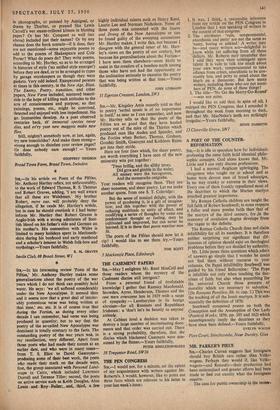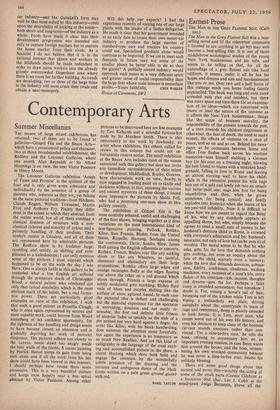MR. PARKER'S PIECE
The case for public ownership in die motor-
car industry—and Mr. Gaitskell's form may well be that most suited to this industry—rests upon the desirability of looking at the needs— both short- and long-term—of the industry as a whole. Fords have made it clear that their development programme was intended not only to capture foreign markets but to capture the home market from their rivals. As a Socialist I do not believe that it is in the national interest that plants and workers in the Midlands should be made redundant in order to draw more workers into the already grossly overcrowded Dagenham area where there is no room for further building. As trends are developing, two or three of the large firms in the industry will soon crush their rivals and obtain a near-monopoly. Will this help our exports? 1 had the experience recently of visiting one of our large plants with the leader of a Sudan delegation. He made it clear that his government intended at an early date to create their own motor-car industry to produce the large number of standard-type cars and tractors his country could use. Specialised products alone would continue to be imported. If we are to meet such demands in future may not some of the smaller plants be better able to do so than the giants? A publicly owned industry would approach such issues in a very different spirit and greater sense of social responsibility than the large firm whose main interest is immediate
profits.—Yours faithfully, JOHN PARKER House of Commons, SWI



































 Previous page
Previous page